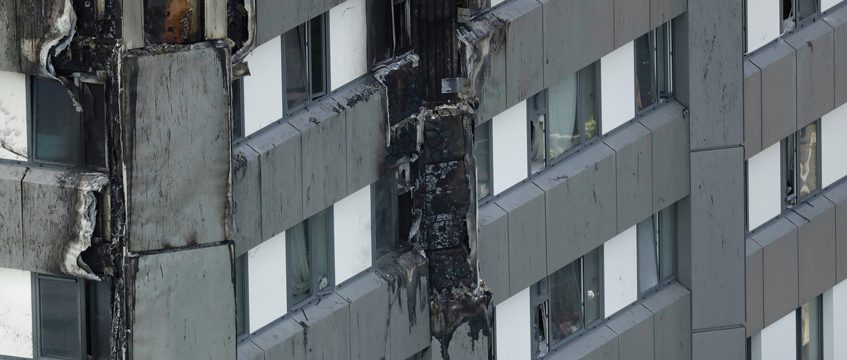Jenrick unveils £2bn resi developer levy
Housing secretary Robert Jenrick has unveiled plans for a levy on residential developer profits to raise £2bn towards high-rise cladding remediation.
The tax on developer profits will come into force in 2022, and is expected to raise the finance over a decade.
Jenrick said the residential developer levy will be in addition to the upcoming revisions to developer contributions with a Gateway 2 applied for high-rise buildings in the planning process.
Housing secretary Robert Jenrick has unveiled plans for a levy on residential developer profits to raise £2bn towards high-rise cladding remediation.
The tax on developer profits will come into force in 2022, and is expected to raise the finance over a decade.
Jenrick said the residential developer levy will be in addition to the upcoming revisions to developer contributions with a Gateway 2 applied for high-rise buildings in the planning process.
Speaking in the House of Commons, he said: “It was always our expectation, our demand, that building owners and developers should step up to meet the cost of this work.
“However, it is clear that without further government intervention, many building owners will seek to pass these potentially very significant costs on to leaseholders.”
Jenrick said the new mechanisms will “make the industry pay for the faults of the past”.
He said: “The tax will ensure the largest property developers make a fair contribution to the remediation programme in relation to the money they make from residential property, reflecting the benefit that they will derive from restoring confidence to the UK’s housing market.”
The government will also provide a further £3.5bn in grants, on top of £1.6bn already committed to cladding remediation for high-rise buildings.
Some of the UK’s largest housebuilders and housing associations have already committed to footing the bill for building safety. Persimmon has set aside £75m for cladding fixes, with L&Q committing £250m to building safety works and inspections.
However, other small developers have complained that they should not be forced to pay for the mistakes of others and raised fears that further levies could stagnate housing delivery.
Leaseholder and lender certainty
The government said the funds will provide certainty that no leaseholder will face costs for cladding remediation works on buildings over 18 metres, or over six storeys, in England.
For smaller buildings, the government has introduced a long-term, low interest loan, capping costs for individuals at £50 a month.
Jenrick added that the measures will also provide certainty to lenders and insurers backing these properties.
He added: “It has to be said that there is no simple solution to this. Many of the builders and developers that constructed those buildings are long-gone, they’ve gone into administration, they are shell companies offshore. This is not a simple challenge to fix.”
To send feedback, e-mail emma.rosser@egi.co.uk or tweet @EmmaARosser or @estatesgazette
Image © AP/Shutterstock











